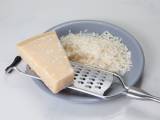How to store leftover lemons: ways not to waste this fantastic citrus fruit

Lemons are extraordinarily versatile fruits with an intense flavor, undisputed protagonists in the kitchen. They can be used in a thousand ways: from juice to zest, as a decorative element or to enrich dishes and drinks with their unmistakable aroma. However, it is common to find oneself with leftover lemons after using only part of them. How best to store them, avoiding waste and keeping their qualities intact? In this article, we will discover together the most effective techniques for preserving the freshness and flavor of lemons, prolonging their use and reducing waste.
1. Storing lemons in the refrigerator
If you find yourself with half or a quarter of a lemon leftover, the best solution is to store it in the refrigerator to preserve its freshness and flavor. For best results, you can wrap the exposed portion in plastic wrap, which creates a barrier against air and prevents oxidation. Alternatively, use an airtight container, which insulates the fruit from refrigerator odors and keeps its moisture.
Another effective method is to place the lemon in a sealed plastic bag-this technique is particularly useful for slowing the drying process, keeping the flesh juicy longer. For a more sustainable approach, you can opt for reusable bags or beeswax films, which reduce environmental impact.
Advantages:
- Simplicity: Quick and easy methods, suitable even for those with little time.
- Prolonged freshness: Lemon remains soft and flavorful for several days.
- Waste prevention: Ideal for lemons that have already been cut and are often left unused at room temperature.
Durability:
- Stored in the refrigerator following these steps, a cut lemon can stay fresh for about 5-7 days, remaining ready for use in cooking or beverages. For optimal freshness, check the appearance and scent of the fruit regularly.
2. Preservation of lemons in water
A simple, natural and effective method to prolong the freshness of a leftover lemon is to preserve it in water. Simply soak half a lemon in a glass or container filled with water, assuring that it is changed daily. This expedient keeps the pulp soft and well hydrated, preventing it from drying out or losing its flavor.
Advantages:
- Ease of use: No special tools are needed, and it is a quick system to put into practice.
- No immediate refrigeration: Ideal for those who want to keep the lemon on hand without having to store it immediately in the refrigerator.
- Extended freshness: Lemon stays juicy and ready to use, perfect for recipes, drinks or garnishes.
- Sustainability: Requires no additional materials such as film or disposable containers, reducing waste.
Durability:
- With this technique, lemons can stay fresh for up to 3-4 days, especially if stored in the refrigerator and if the water is changed regularly. This simple but effective method is a practical and sustainable alternative for reducing waste and optimizing the use of such a valuable ingredient in the kitchen.
3. Freezing juice and zest
One of the most effective solutions for storing leftover lemons is freezing, a practical and versatile method. To start, you can squeeze out the juice and freeze it in ice cube molds-a perfect solution for using the lemon in small doses, for example, to flavor teas, cocktails, soups or condiments. If, on the other hand, you used only the pulp and have leftover zest, grate it finely and store it in a freezer bag. This will allow you to have an aromatic ingredient always ready for desserts, savory dishes, or drinks.
Benefits:
- Optimal storage: Freezing preserves freshness, flavor and nutritional properties.
- Zero waste: You can reuse every part of the lemon, avoiding unnecessary food waste.
- Convenience: Frozen juice and zest are easy to portion and use directly in recipes.
- Year-round availability: It allows you to always have lemon on hand, without having to buy fresh fruit every time.
Durability:
- Frozen juice retains its quality for up to 6 months.
- Frozen grated zest can be used within 3 months.
4. Preserving lemons in brine
For a traditional method with exotic appeal, you can preserve leftover lemons in brine. This technique, typical of Middle Eastern and North African cuisine, involves soaking whole or wedged lemons in a jar with a solution of water and salt. During fermentation, which takes several weeks, the lemons develop a unique, intense and complex flavor, making them ideal for enriching a variety of dishes.
Benefits:
- Intense and complex flavor: Fermentation enriches the flavor of lemons, giving them a unique depth that cannot be achieved by other preservation methods.
- Versatility in the kitchen: It is perfectly suited to many recipes, from traditional cooking to modern experimentation.
- Waste reduction: This is a great way to extend the life of leftover lemons, turning them into a valuable ingredient.
Durability:
- Pickled lemons can be stored in a cool, dark place for several months, up to a year, thanks to the preservative power of salt.
You might also be interested in:
 Daniele Mainieri
Daniele Mainieri



Comments